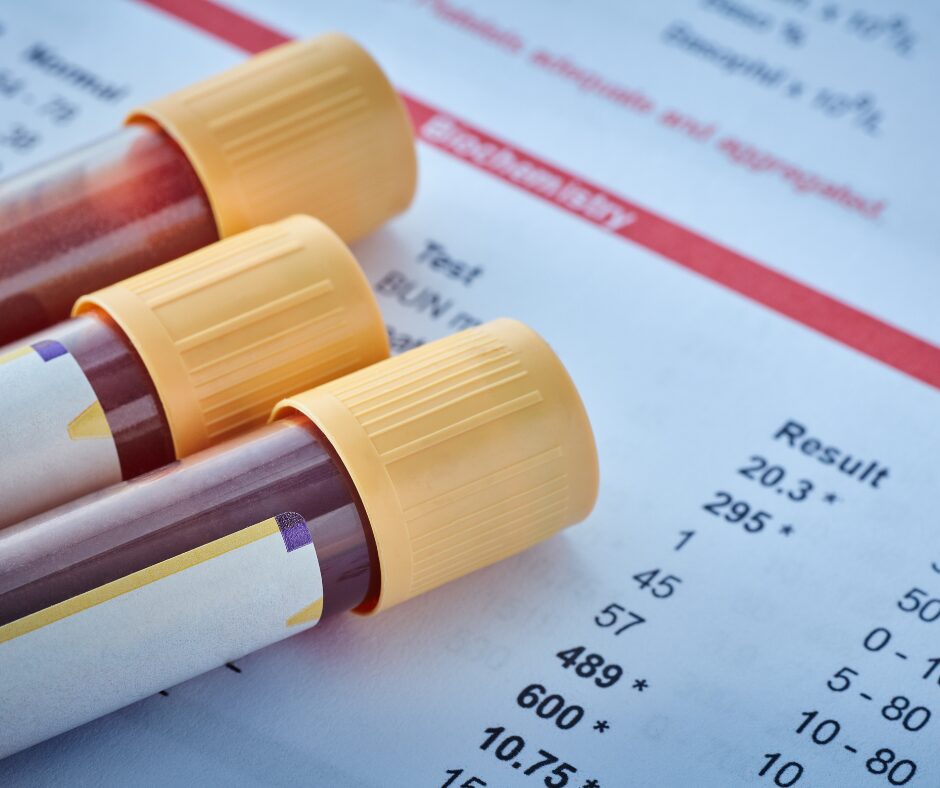Does Medicare Cover Blood Tests? Everything You Need to Know
Does Medicare cover blood tests? Yes, it does, but only if they are ordered by a Medicare-enrolled doctor and deemed medically necessary. In this article, we’ll explain which blood tests are covered, what costs you might expect, and how to ensure your tests are covered.
Key Takeaways
- Medicare Part B covers medically necessary blood tests ordered by a Medicare-enrolled healthcare provider, typically without cost after the beneficiary meets the Part B deductible.
- Certain blood tests, such as Complete Blood Count (CBC), Blood Chemistry Tests, Lipoprotein Panel, and Thyroid-Stimulating Hormone (TSH) Test, are covered under Medicare if deemed necessary for diagnosis or treatment.
- Beneficiaries should be aware of frequency limits and potential out-of-pocket costs for blood tests, particularly under Medicare Advantage plans, which may impose additional charges depending on specific coverage.
Medicare Coverage for Blood Tests

Medicare Part B provides coverage for clinical diagnostic lab tests, including blood tests, when ordered by a Medicare-enrolled healthcare provider. This means that if your doctor deems a blood test medically necessary, Medicare will typically cover it. However, the term “medically necessary” is key here. Medicare covers blood tests and lab work when deemed medically necessary by a doctor, meaning that routine blood work for general health monitoring may not always be covered unless specific medical criteria are met. This is why it is an absolute must to use a Medicare eligibility checker.
Routine blood work, often a staple of annual checkups, is not covered by Medicare unless it’s deemed medically necessary. For instance, testing for cholesterol or glucose levels might only be covered if you have a condition that requires monitoring, such as diabetes. Once approved, Medicare typically pays nothing for blood tests after beneficiaries meet their Part B deductible, making it financially easier for beneficiaries to get the tests they need. However, beneficiaries may be responsible for 20% coinsurance for certain blood tests under Original Medicare, depending on the specific circumstances.
Medicare Advantage plans must provide coverage for blood tests that is at least equivalent to what Original Medicare offers. These plans, offered by private insurance companies, are required to medicare cover blood tests that Medicare Part B covers, ensuring that beneficiaries receive necessary diagnostic services. Some Medicare Advantage plans might even offer additional benefits or more comprehensive coverage for blood testing. Checking with your specific plan can reveal if there are any unique benefits or additional coverage options available.
Understanding the nuances of Medicare coverage for blood tests can help you avoid surprises and ensure you receive necessary medical care without unexpected costs. Whether on Original Medicare or a Medicare Advantage plan, knowing what is covered can significantly impact effective health management.
Types of Blood Tests Covered by Medicare

Medicare covers a variety of medically necessary blood tests for diagnosis and treatment, ensuring that patients receive appropriate care without financial strain. To qualify for coverage, these tests must be deemed medically necessary by a doctor and performed at a Medicare-approved laboratory.
Let’s explore some common types of blood tests that Medicare covers. Each type of blood test serves a specific purpose, from detecting blood disorders to monitoring organ function. Here, we will delve into the details of Complete Blood Count (CBC), Blood Chemistry Tests, Lipoprotein Panel, and Thyroid-Stimulating Hormone (TSH) Test. Understanding these tests can help you better navigate your healthcare options.
Complete Blood Count (CBC)
The Complete Blood Count (CBC) is a fundamental blood test that measures various components of your blood, including red and white blood cells, hemoglobin, and platelets. This test is crucial for detecting conditions like anemia, blood cancers, immune system disorders, and clotting problems. It provides a comprehensive overview of your blood health, which can be vital for diagnosing and managing various medical conditions.
Medicare covers CBC tests when they are deemed medically necessary by a doctor. For instance, if you show symptoms of anemia or have a history of blood disorders, your doctor may order a CBC to monitor your condition. Coverage of these critical diagnostic tests by Medicare ensures patients receive timely and accurate diagnoses, paving the way for effective treatment plans.
Blood Chemistry Tests
Blood chemistry test, also known as the Basic Metabolic Panel (BMP), is essential for assessing the levels of vital substances in your blood, such as calcium, glucose, and electrolytes. These tests can help diagnose a variety of conditions, including kidney disease, diabetes, and electrolyte imbalances.
Medicare covers these tests when deemed medically necessary by a healthcare provider. For example, if you have diabetes, regular blood chemistry tests can help monitor your glucose levels, aiding in effective condition management.
Coverage of these diagnostic tests by Medicare aids in the early detection and management of chronic conditions through a diagnostic test.
Lipoprotein Panel
A Lipoprotein Panel, often referred to as a full lipid profile, measures cholesterol levels in the blood and helps assess the risk of heart disease. This test is crucial for individuals at high risk of cardiovascular issues, providing insights into cholesterol and triglyceride levels.
Medicare covers cholesterol screening blood tests once every five years if ordered by a doctor. There is no cost for these screenings if the doctor accepts Medicare assignment. Regular cholesterol testing can identify potential heart disease risks early, enabling preventive measures.
Thyroid-Stimulating Hormone (TSH) Test
The thyroid stimulating hormone test is vital for evaluating thyroid function and hormone production. This test measures the level of TSH in your blood, which can indicate whether your thyroid gland is overactive (hyperthyroidism) or underactive (hypothyroidism).
Medicare covers TSH tests when ordered by a doctor to diagnose or manage thyroid disorders. High levels of TSH may indicate that the thyroid gland is not making enough hormones, while low levels can suggest that it is producing too much. Coverage of this essential test by Medicare ensures thyroid conditions are diagnosed and treated appropriately.
Frequency and Cost of Blood Tests Under Medicare
Understanding how often Medicare covers blood tests and the costs involved is crucial for managing your healthcare. Typically, Medicare covers blood tests one to two times each year, although the frequency can vary based on individual health needs and doctor recommendations. If you require more frequent testing, it’s essential to discuss this with your doctor or contact Medicare for guidance.
Costs are another critical aspect. Generally, patients incur no costs for Medicare-approved clinical diagnostic laboratory tests after meeting their Part B deductible. However, if tests are conducted more frequently than Medicare guidelines allow, patients may face out-of-pocket expenses.
Frequency Limits
Medicare has specific frequency limits on blood tests based on medical necessity and guidelines. For example, cholesterol screenings are typically covered once every five years, while tests for conditions like diabetes and HIV may be covered annually. Preventive tests, such as fecal occult blood tests, are covered once a year under Medicare guidelines.
If more frequent tests are needed due to your medical condition, discuss this with your healthcare provider. They can provide documentation to justify the increased frequency to Medicare, ensuring you receive the required care without additional costs.
Out-of-Pocket Costs
Typically, patients do not incur costs for Medicare-approved diagnostic laboratory tests after meeting their Part B deductible. However, there are instances where out-of-pocket costs might apply, such as copayments or coinsurance under Medicare Advantage plans. For example, beneficiaries under Original Medicare might have no costs for most blood tests once they meet the annual Part B deductible.
It’s also important to note that using in-network laboratories can result in lower costs for blood tests under Medicare Advantage plans. If your provider believes a test might not be covered, you may be asked to sign an Advance Beneficiary Notice of Noncoverage (ABN) to acknowledge potential costs.
Other Laboratory Tests Covered by Medicare
In addition to blood tests, Medicare covers a wide range of other laboratory tests necessary for diagnosing and monitoring various health conditions, including diagnostic non laboratory tests. These include urinalysis, Pap tests, fecal occult blood tests, and more. Ensuring these tests are covered helps patients receive comprehensive care without financial burden.
Understanding which clinical laboratory tests and lab test are covered by Medicare can aid in better health management. Let’s explore some of these laboratory test in more detail.
Urinalysis
Urinalysis is a crucial diagnostic tool used to assess various health conditions, including urinary tract infections, kidney disease, and diabetes. This test involves analyzing a urine sample to detect abnormalities that may indicate a medical problem.
Medicare covers urinalysis tests when prescribed by a healthcare provider for medical reasons. By ensuring coverage for these essential tests, Medicare helps in the early detection and management of potential health issues.
Fecal Occult Blood Tests
A fecal occult blood test checks for hidden blood in the stool, which can be an early sign of colorectal cancer or other digestive issues. This test is a critical component of colorectal cancer screening programs.
Medicare covers fecal occult blood tests once a year as part of its preventive services. A positive result indicates possible bleeding in the digestive tract, warranting further investigation. Additionally, Medicare covers multi-target stool DNA tests once every three years.
Pap Tests
Pap tests are used to screen for cervical cancer in women. This test involves collecting cells from the cervix to detect any abnormalities that could indicate cancer or pre-cancerous conditions.
Medicare covers Pap tests as part of routine cervical cancer screening for eligible women. The frequency of coverage depends on specific risk criteria and medical necessity. By covering these tests, Medicare ensures that women receive essential screenings for early detection of cervical cancer.
Exclusions: Blood Tests Not Covered by Medicare
While Medicare covers many blood tests, there are specific exclusions. Blood tests associated with employment, wellness screenings, or routine monitoring are not covered. This applies unless there is a medical necessity. For example, tests for employment-related purposes or general wellness checks without a diagnosed condition are not reimbursed by Medicare.
To qualify for coverage, blood tests must be prescribed specifically for diagnosing or managing a medical condition. Understanding these exclusions can help beneficiaries avoid unexpected costs and ensure that their tests are covers medically by Medicare.
Understanding Medicare Advantage Plan Coverage
Medicare Advantage plans, offered by private insurance companies, must cover all tests that Original Medicare covers, including certain blood tests deemed medically necessary. However, these plans may also offer expanded coverage for preventive blood testing beyond what Original Medicare covers, including aspects related to medical insurance. Additionally, it is important to understand what medicare cover in terms of various health services.
Using in-network laboratories can result in lower costs for blood tests under Medicare Advantage plans. Beneficiaries should check with their specific plan for coverage details related to blood tests, including any copayments or coinsurance. This ensures that they receive necessary tests without unexpected financial burdens.
Getting Blood Tests Covered by Medicare
To ensure your blood tests are covered by Medicare, a doctor must indicate the medical necessity for the tests. This involves your healthcare provider documenting why the test is needed to diagnose, monitor, or treat a specific condition.
In cases where coverage is uncertain, you may need to sign an Advance Beneficiary Notice of Noncoverage (ABN), informing you of potential costs if Medicare does not cover the test. Understanding these requirements helps you navigate the process and ensure your tests are covered.
Summary
Understanding Medicare’s coverage for blood tests is crucial for managing your health and avoiding unexpected expenses. Medicare covers a variety of blood tests deemed medically necessary, including CBC, blood chemistry tests, lipoprotein panels, and TSH tests. However, routine tests not deemed necessary by a doctor are not covered.
By knowing the frequency limits, potential out-of-pocket costs, and specific coverage details under Medicare Advantage plans, you can better manage your healthcare needs. Stay informed and proactive in discussing your medical needs with your healthcare provider to ensure you receive the necessary tests.
Frequently Asked Questions
Does Medicare cover routine blood tests?
Medicare generally does not cover routine blood tests unless they are considered medically necessary by a healthcare provider. Thus, it is important to consult a healthcare professional to determine eligibility for coverage.
How often does Medicare cover cholesterol tests?
Medicare covers cholesterol screening blood tests once every five years when ordered by a doctor. Ensure to discuss this with your healthcare provider for your specific needs.
What are the out-of-pocket costs for blood tests under Medicare?
Under Medicare, patients usually incur no out-of-pocket costs for approved diagnostic blood tests after meeting their Part B deductible, though costs may vary if enrolled in Medicare Advantage plans.
Are blood tests for employment covered by Medicare?
Blood tests for employment are not covered by Medicare, as they are considered routine screenings without medical necessity.
How can I ensure my blood tests are covered by Medicare?
To ensure your blood tests are covered by Medicare, confirm that your doctor specifies the medical necessity for the tests and be prepared to sign an Advance Beneficiary Notice of Noncoverage (ABN) if required.
